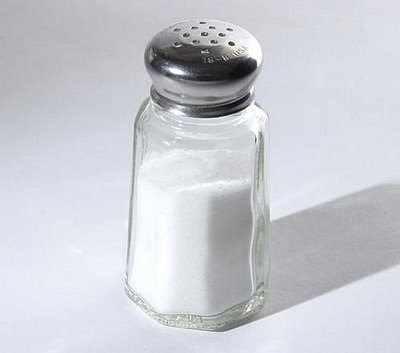1. When you find yourself confronted with two clear teachings in the Bible that seem to contradict one another, it's often helpful to view the two teachings as the extreme ends on a spectrum of truth. Settle it in your mind that you will affirm both because both are taught in God's Word. Whatever conclusions you draw from that point on must fall somewhere between the two ends. You cannot deny either of them.
2. Start from what's clear and work from there into what's not clear.

3. Prayerfully and carefully, study your Bible to find out if either side is emphasized more strongly or consistently than the other.
4. Pay close attention to the ways in which the two teachings relate to one another in Scripture. For example, there is a paradox concerning faith and works, to the extent that some have said we are saved by faith AND works. But Scripture as a whole is very clear on this point. It teaches us that good works grow out of faith, that faith comes first and is the ground from which good works spring. We are saved by grace alone, through faith alone. Works are an evidence of this salvation, not the way to it. This approach upholds the balance of Scripture without denying any of the Biblical teaching on the subject.
5. Note what the Bible DOES NOT SAY about these truths. Be wary of thinking dogmatically in areas where God has not spoken. Biblical silence speaks loudly.
6. Weigh both sides and be diligent to keep them in balance. This will take time and prayerful study, but keep working at it. If you don't, you may end up believing and saying things about God that are just plain wrong.
Here's a great illustration of the need for balance and the value of paradox:

"The element sodium is a silver-colored metal that reacts so violently with water that flames are produced when sodium gets wet. The element chlorine is a greenish-colored gas that is so poisonous that it was used as a weapon in World War I. When chemically bonded together, these two dangerous substances form the compound sodium chloride, a compound so safe that we eat it every day - common table salt!"
Thanks to visionlearning.com for this information.
We can think of Biblical truth in the same way. If we affirm that Jesus is only God and not man, we perpetuate a poisonous heresy. If we say He is only man, we betray the faith. But if we defy our own logic and believe what the Bible says - namely that He is the God-Man Who shares both complete humanity and complete divinity - we enjoy the salt of a balanced Biblical orthodoxy.

One definition of agnosticism is not being sure God exists. This is another non-option for the born-again Christian because we actually /know/ the Lord (Jeremiah 31:34).
ReplyDeleteMay God bless this fruitful mind-worship!
Derek,
ReplyDeleteThis is a good start. Some people of a more postmodern mindset might have initially thought your fascination with paradox (others have called it antinomy) would lead to a declaration of uncertainty. You already know what is said - "The Bible cannot be turned into a systematic theology with which to brutalize other people". "The only thing we can be certain of is that we are uncertain about everything." "We have epistomological humility because we refuse to call ourselves right and others wrong."
But you have shown what true humility is - which is to own up to not knowing in exhaustive and omniscient detail what God is like while insisting that He can be known because He has revealed Himself. And in revealing Himself we discover that He is not "altogether as we are", nor is He what we expect from our limited and sin influenced perspective.
The postmoderns think they are humble, but they have not learned the concept of surrender and submission to God's Word, which is what you are explaining here.
Good stuff.
Tony
Tony,
ReplyDeleteThanks for this encouragement. Theoparadox is in some respects a response to postmodernism, especially as that philosophy tries to seep into evangelicalism through the emerging church. It's also a response to the social gospel and liberal theology, not to mention encrusted self-righteous orthodoxy and hardline doctrinal perfectionism (against which the emerging church itself is a reaction, as you have pointed out on your blog). The proper surrender is to say that GOD is right, God is perfect, God is transcendent, and our only hope of correct belief and practice is in conformity to His self-revelation - the Bible.
I'm quite taken by the concepts I find here: http://www.newattitude.org/humbleorthodoxy
and I'm trying to reflect this as best I can.